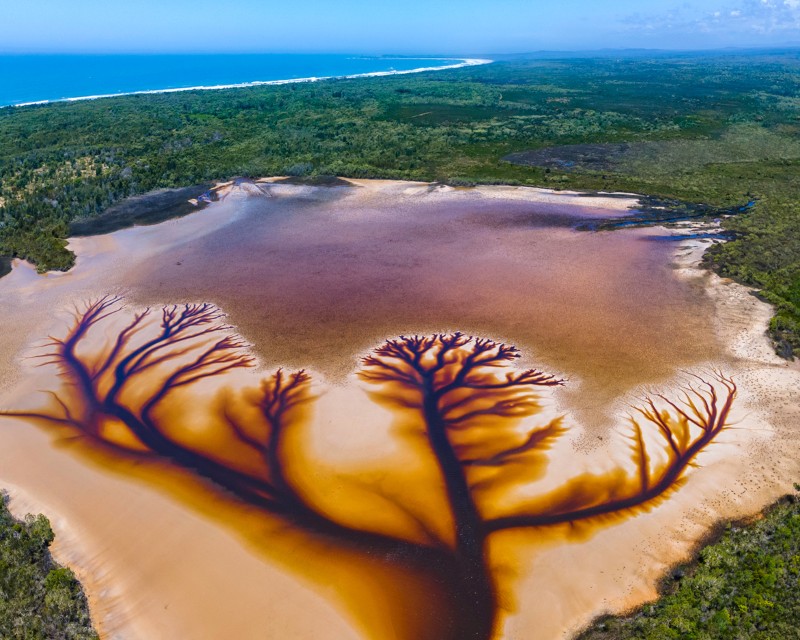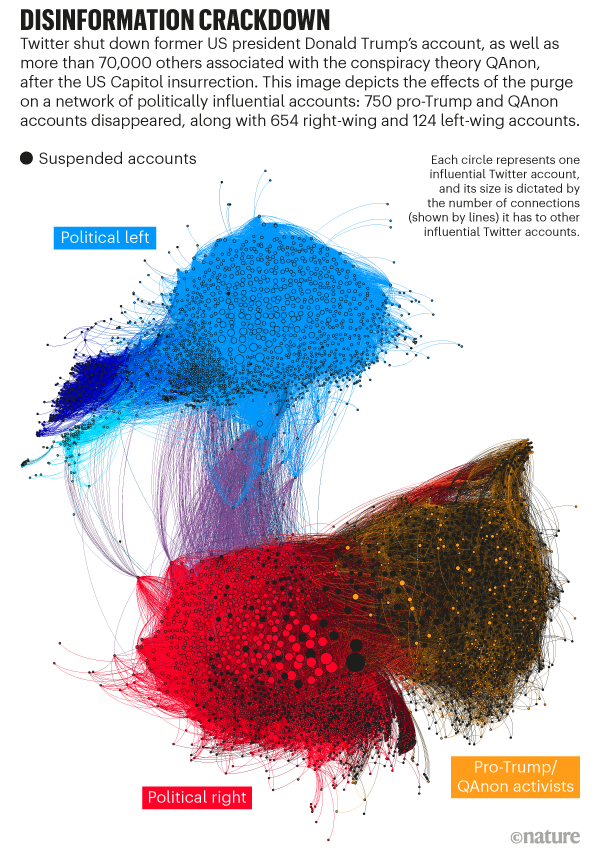Hello Nature readers, would you like to get this Briefing in your inbox free every day? Sign up here
While taking aerial photos with his drone, Australian photographer Derry Moroney came across these massive, tree-like patterns in Lake Cakora in New South Wales. The colourful drainage channels form when water full of oil from the surrounding tea trees (Melaleuca alternifolia) runs into the lake. The photos were taken after several days of storms. “When I first saw it, I thought it was a tree of life,” Moroney told BBC News. “Every couple of weeks, when we have different weather, it totally changes.”See more of the month’s sharpest science shots, selected by Nature’s photo team.
Nature | Leisurely scroll
Researchers are working to make sense of a new era of disinformation personified by the rise of the conspiracy theory QAnon. By taking QAnon’s fringe ideas mainstream, former US president Donald Trump taught new and dangerous lessons about manipulating social and mass media. The Capitol riot was “this physical manifestation of all of these digital characters we’ve been studying”, says Kate Starbird, a social scientist who investigates the spread of disinformation on social media. “To see all of that come alive in real time was horrifying, but not surprising.” Many researchers say it’s already clear that new regulations will be needed to govern the Internet, tech giants and the content that their users post online.
Nature | 7 min read
A cacophony of artificial noise is drowning the ocean’s natural soundscape to a degree that threatens marine animals’ ability to flourish and survive. Natural sound is key for ocean dwellers to navigate their underwater habitats and communicate with each other. Noise pollution from sources including shipping, construction and sonar surveys can hamper sea creatures’ delicate senses of hearing and orientation.
Ecowatch | 5 min read
Reference: Science paper
Features & opinion
Written grant proposals are inefficient to prepare and review, and scoring is notoriously unreliable, argue bioengineer Michael Doran, chemist William Lott, statistician Adrian Barnett, science-communication researcher Joan Leach and scientific-reproducibility researcher John Ioannidis. It’s time to consider audio-visual alternatives, they write.
Nature | 6 min read
While the coronavirus continues to surge globally, cases of the flu and other respiratory viruses have dwindled. Since late last year, some 800,000 samples have been tested for the flu in laboratories across the United States, and only 1,500 have been positive — close to 100 times fewer than those identified last year from a similar number of tests. Flu viruses have temporarily gone into hiding, and scientists aren’t sure when, and in what form, they will return.
The Atlantic | 9 min read


